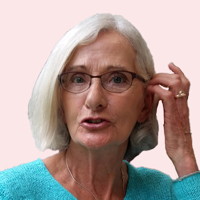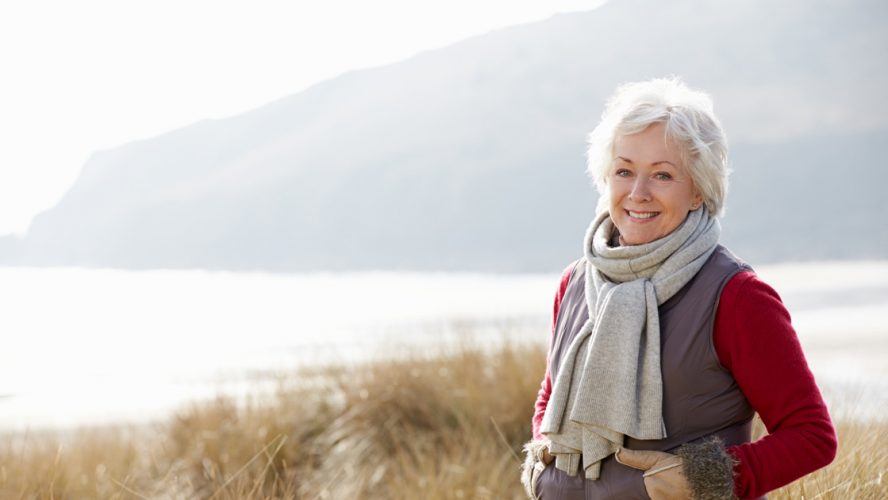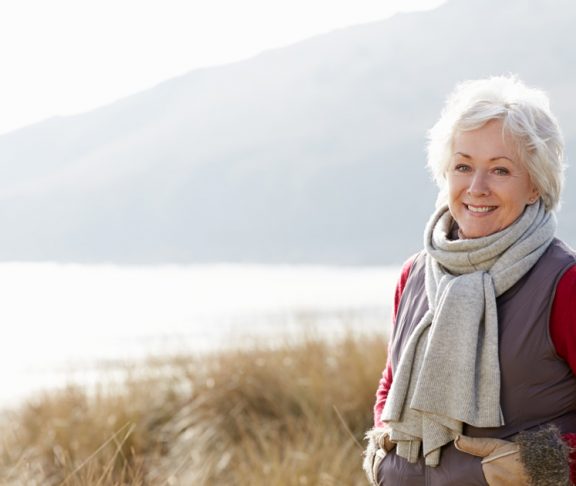
Ann Baker
Cancer patient
Lung cancer patient, Ann Baker, was told that conventional chemotherapy would not be suitable treatment for her disease. Thankfully, a drug trial yielded positive results.
One night in 2016, 70-year-old Ann Baker developed severe pain in her shoulder. “I went to my GP who sent me for a chest X-ray,” remembers Ann. “That’s when it was discovered that I had a tumour on my right lung.” It was devastating news and a complete shock, because Limerick-based Ann — a regular at the gym — wasn’t displaying the symptoms of breathlessness or coughing usually associated with the disease.
Worse was to come. Unfortunately, after having part of her lung removed, it was discovered that the cancer had spread to the pleura (the thin membranes covering the outside of the lungs), which meant the disease was stage four and unsuitable for conventional chemotherapy. “My brother and sister had survived cancer,” says Ann. “So I assumed I would sail through it, too.”
Experience of a cancer drug trial
Her oncologist suggested the possibility of receiving treatment from a trial drug; but more worry followed when Ann began developing double vision. At first she put this down to macular degeneration, but an MRI showed it was due to a small tumour on her brain. “Before I could receive the trial drug, I was told I needed radiotherapy to shrink the brain tumour,” she says. “Which it did, thankfully.”
Ann admits that she didn’t know much about cancer trial drugs, but had read about the experience of former US President Jimmy Carter, who had seen huge improvement in his cancer after going on a trial for a new immunotherapy drug.
She agreed it was the way forward and received her first treatment with a trial drug in January 2017. “It meant going to University Hospital Limerick every three weeks, which I was supposed to do for three years,” she says. “But after 13 months, I started experiencing side-effects including nausea and dehydration so I stopped receiving the treatment in March 2018.”
A way to help future generations
Even so, Ann considers the trial to have been a complete success and “wouldn’t hesitate” to do it again if necessary. “I’m stable and have been since the trial began,” she says. “And I feel great!
“I’m monitored with a CT scan every 12 weeks and a chest X-ray every six weeks. I’m 73 now and doing everything I did before. I don’t have children myself, but I do have nieces and nephews and cancer is so prevalent these days. That was another reason I decided to go on a cancer trial: apart from saving my own life, I saw it as a way to help future generations.”

